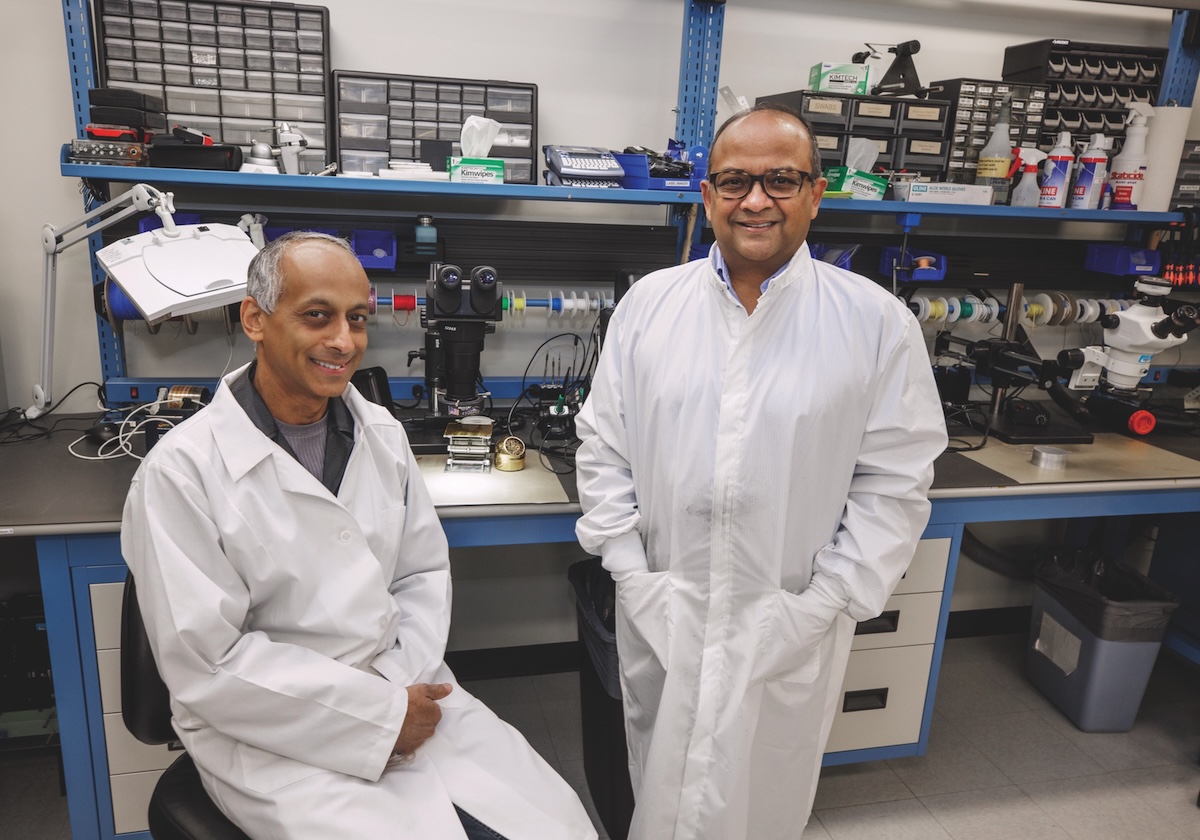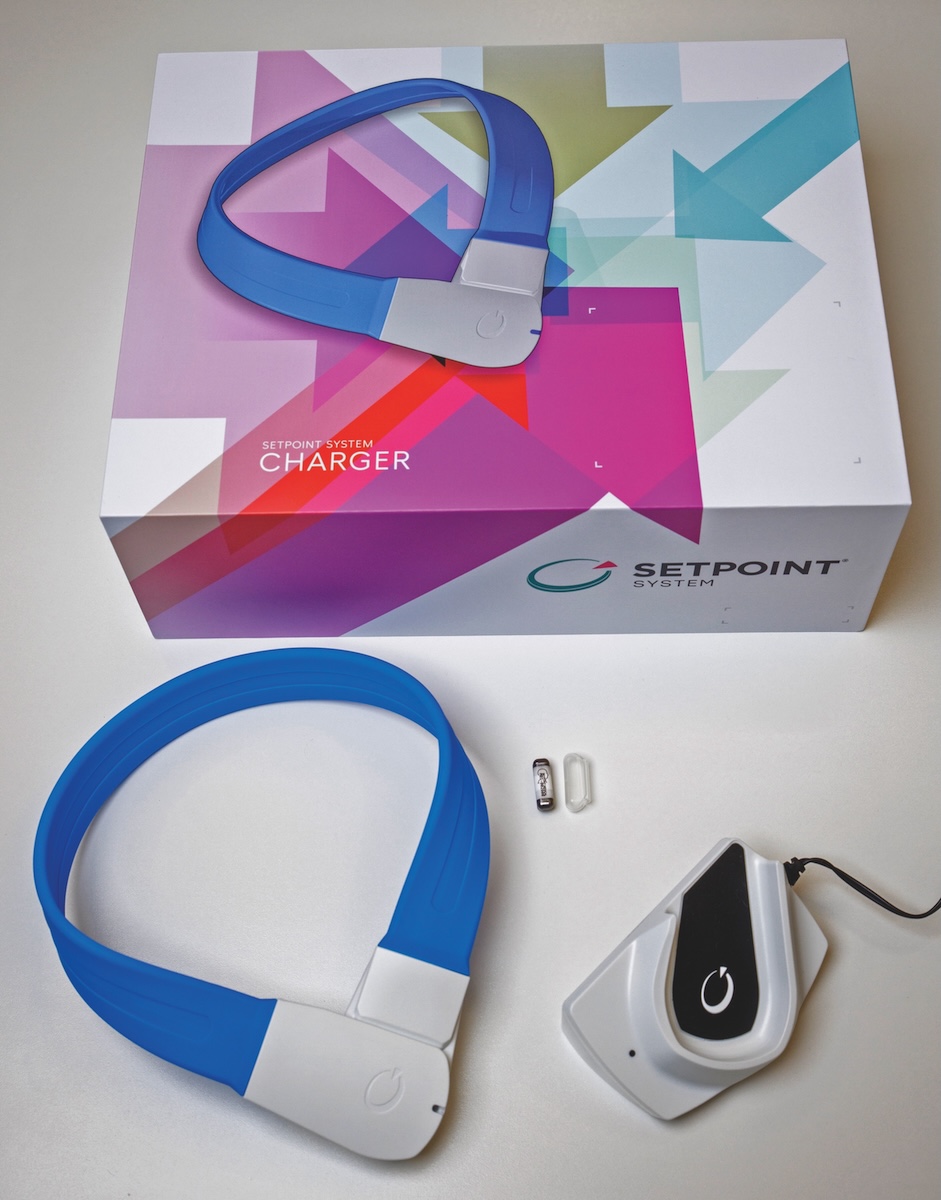Call it a double-dose of good news for Santa Clarita-based nerve-stimulating device maker SetPoint Medical Corp.
On July 31, the company announced that the U.S. Food and Drug Administration had approved its neurostimulation implant device to treat rheumatoid arthritis patients. This marks one of the first approvals of such a device for treatment of autoimmune diseases. For decades, the standard course of treatment has involved pharmaceuticals.
Less than two weeks later, SetPoint Medical announced on Aug. 11 a major late-stage financing round of $140 million from a consortium of 20 investment companies, co-led by Austin, Texas-based Elevage Medical Technologies and New York-based Allied Bridge Group. The company said it intends to use the proceeds to build out a marketing and distribution network for the neurostimulation device, among other things.
“This signals the emergence of bioelectric medicine in an autoimmune therapy market that has for decades been dominated by pharmaceutical companies,” said Walid Sabbagh, chief executive of the Southern California Biomedical Council, a Westwood-based local life science industry trade association.
Targeting the vagus nerve
SetPoint Medical’s technology has its roots in research conducted on the vagus nerve by Dr. Kevin Tracey, who is currently the chief executive of the Feinstein Institutes for Medical Research in Manhasset, New York. The vagus nerve carries neural signals between the brain, heart and digestive system.
Tracey found that the vagus nerve is a key regulator of inflammatory cytokines throughout the body, and he believed that a breakdown in the communication centered on the vagus nerve triggers the overactive immune response that is the hallmark of autoimmune diseases. Restoring the proper function of the communication channel through signals from an implant could play a major role in treating autoimmune diseases, such as rheumatoid arthritis, multiple sclerosis and lupus.
Tracey co-founded SetPoint Medical in 2007 to further develop this vagus nerve implant technology and attempt to bring it to market. Over the next 15 years, SetPoint Medical raised more than $200 million to hone the technology and take it through the necessary clinical trials to gain FDA approval.
“The role of the implant in the vagus nerve is to calibrate the body’s production of inflammatory cytokines,” said Murthy Simhambhatla, SetPoint Medical’s chief executive. “The implant we developed is the size of a multivitamin. It stimulates the nerve for just one minute each day. But that’s enough to train the immune cells to become quiescent for two days, thereby not producing inflammatory cytokines.”
To ensure the implant functions over a long period of time, the patient is given wireless charger that is worn about the neck for about 10 minutes per week.
The technology can be applied to almost any autoimmune disease, Simhambhatla said.

Rheumatoid arthritis relief
Rheumatoid arthritis was chosen because there are so few tolerable treatment options.
“There are 1.5 million people in this country diagnosed with rheumatoid arthritis and most live with debilitating pain,” Simhambhatla said. “Most of the drugs available to treat RA come with major warnings and side effects and are self-injected – all major deterrents for patients looking for relief.”
Not only that, but the drugs – including Janus-Kinase inhibitors – are costly and have to be taken for life. Simhambhatla said the latest generation of drugs can cost more than $60,000 a year per patient, which adds up to $30 billion a year for total drug spending. Health insurance companies and programs bear most of this expense.
“Ours is a more cost-effective option – one surgical procedure and that’s it,” Simhambhatla said. “Payers will break even in less than a year and realize savings every year after that.”
SetPoint Medical submitted its application last December to the FDA for treatment of rheumatoid arthritis.
Financing rounds
Once the device was submitted to the FDA, SetPoint began working on another round of financing to fund the manufacturing and marketing of the implant device. SetPoint’s efforts culminated in this month’s announcement of the $140 million funding round, which brings the total the company has raised to a little more than $350 million.
The investment consortium this time featured three new investors: New York-based Northwell Health, Wilmette, Illinois-based SPRIG Equity and an undisclosed strategic investor. The remaining 17 investors had all participated in previous funding rounds.
Simhambhatla said a significant portion of the $140 million will go toward marketing: setting up a distribution chain and a network of representatives to convince rheumatoid arthritis clinicians to choose the implant over traditional drug therapy. He added he expects the first implants to be surgically inserted before the end of this year, with the pace picking up next year.
However, Sabbagh of the Southern California Biomedical Council said this might not be a smooth process.
“Overturning clinicians’ resistance to new technology could be a big hurdle for them, especially since they are a first mover with this technology as applied to autoimmune diseases,” he said.

Another issue will be convincing insurers to cover the implant device. Simhambhatla said the company will attempt to show insurers the significant cost savings when the device and surgical implant procedure are weighed against lifetime use of costly drugs.
Sabbagh added that while SetPoint Medical is one of the first in this arena, other companies will quickly catch up, giving the company a limited window to establish a favorable market position.
Some of the funds will also go toward scaling up the manufacturing process, though Simhambhatla said this shouldn’t be too much of a concern.
“This is not an ultra-high-volume product – we’re talking about tens of thousands of units for several years,” he said. “And most of the production is taking place in the United States, so we’re not anticipating a huge issue with tariffs.”
Next up: Multiple sclerosis?
Simhambhatla said some of the $140 million raised in this round will also go toward development of additional applications for the neurostimulation device technology.
“We are more broadly an autoimmune treatment company,” he said. “Rheumatoid arthritis is the first approved indication, but we’re definitely looking at others. We have run some studies on Crohn’s disease (a chronic irritable bowel disease) and are investigating for the treatment of multiple sclerosis.”
He said that with regard to multiple sclerosis, the disease damages the body’s nerve sheath and that SetPoint Medical’s nerve implant device could help restore some of that nerve sheath damage.
Indeed, Simhambhatla said some additional research and development work will have to be done for each potential new autoimmune condition or disease target.
“This is not as simple as, ‘I have a hammer – what types of nails can I hit with it?’” he said. “It’s going to be a long journey.”